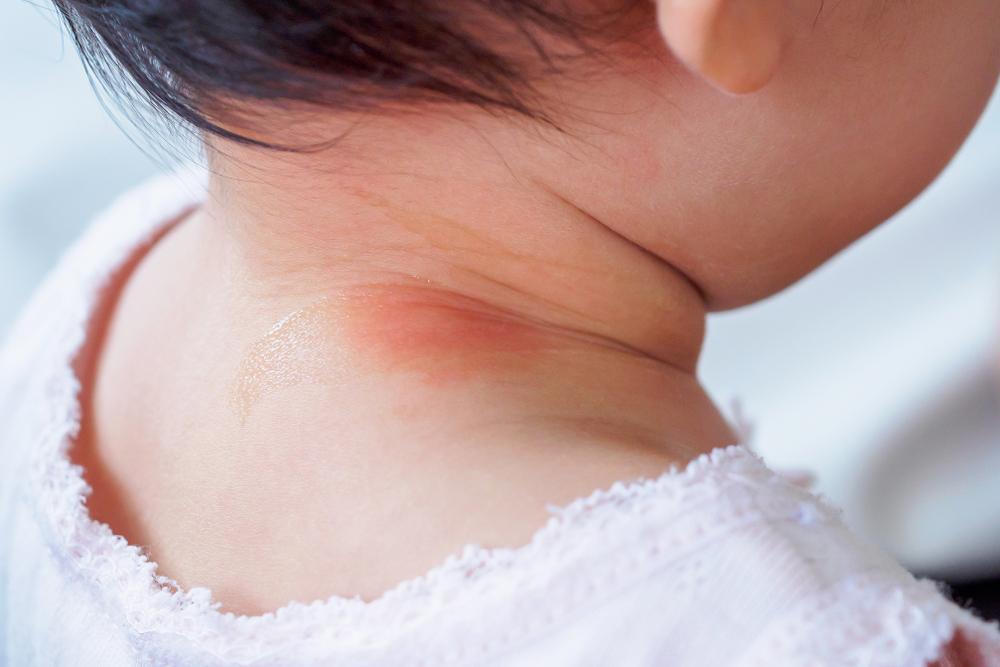Contents:
- Medical Video: Ears 101 : How to Remove Water From Your Ear
- What is that swimmer's ear?
- Cause swimmer's ear
- What can increase your risk of having an ear infection after swimming?
- What are the signs and symptoms of ear infectionsswimmer's ear?
- How to treat ear infections swimmer's ear
- Complications that may occur due to ear infections swimmer's ear
- Successful treatment and prevention methods
Medical Video: Ears 101 : How to Remove Water From Your Ear
If you are a swimmer or have a hobby of swimming, the ear that is conceded by water is certainly a normal thing. However, if not careful, the water that enters can potentially cause an ear infection called swimmer's ear.
What is that swimmer's ear?
Swimmer's ear is one of the outer ear infections due to exposure to permanent moisture from the remaining water trapped in the ear after swimming or diving. The combination of a labyrinthine ear structure and water trapped in it then creates a moist environment that is suitable for bacteria and fungi to grow. Term swimmer's ear itself appears because this condition is often experienced by those who often swim.
Cause swimmer's ear
Normally, the human ear produces cerumen or earwax as a natural form of defense from germs that will enter the ear. Swimmer's ear can occur when your ears do not produce enough earwax to prevent bacterial and fungal infections. Some of the following conditions can cause you to experience swimmer's ear:
- Allow too much water to enter the ear
- Too often cleaning the ears with a cotton bud
- Let various chemicals such as hairspray enter the ear, causing a sensitivity reaction.
- Scraping the ears causing exfoliation of the skin and making it a source of ear infections
- Enter foreign objects in the ear
What can increase your risk of having an ear infection after swimming?
Some conditions can increase your risk of ear infectionsswimmer's ear:
- Swimming frequently, especially in public swimming pools
- Swimming in the place contains a lot of bacteria or has dirty water
- Use headphones or hearing aids that can hurt the ear
- Have medical conditions such as psoriasis, eczema, or seborrheic dermatitis
What are the signs and symptoms of ear infectionsswimmer's ear?
Some signs and symptoms of ear infectionsswimmer's ear among others:
- Swollen ears
- Redness
- Feels hot
- Ear pain or feeling uncomfortable
- Pus or liquid out
- Itching in the ear hole
- Decreased hearing
Pain in the face, head and neck can be felt if this ear infection has spread. Symptoms accompanied by fever or swelling in the lymph nodes can also be a sign that the infection has been severe. If you experience ear pain accompanied by the above symptoms, contact your doctor immediately.
How to treat ear infections swimmer's ear
For ear infections that cannot heal on their own, doctors will usually prescribe antibiotic ear drops. Doctors can also give antibiotics mixed with steroids to reduce swelling in the ear canal. The drops are usually used several times a day for seven to ten days.
If your ear infection is caused by fungi, your doctor will prescribe anti-fungal ear drops. This type of infection is usually experienced by people with diabetes or immune system disorders.
To reduce symptoms, it is important for you to protect your ears from water during the healing process. Drugs from pharmacies such as ibuprofen or acetaminophen can also be used to help relieve pain.
Complications that may occur due to ear infections swimmer's ear
If the infection of the outer ear is left untreated and does not heal by itself, this condition can cause several complications. An abscess is one of them, so your doctor may have to remove pus that accumulates in it.
Long-lasting ear infections can also cause narrowing of the ear canal. This narrowing can affect hearing function, and in extreme cases, can cause hearing loss.
Tearing of the eardrum can also be a complication of external ear infections. This condition can cause severe pain. Symptoms can include temporary hearing loss, hearing ringing or buzzing, discharge of fluid from the ear, and discharge of blood from the ear.
In rare cases, infection of the outer ear can also cause a malignant condition called necrotizing malignant otitis externa. This condition is a very serious condition, where the infection spreads to the cartilage and hard bones around the ear canal. Symptoms can include ear pain and severe headaches, continuous discharge from the ear, facial nerve palsy on the aching side of the ear, and exposure to bone in the ear canal.
Successful treatment and prevention methods
If treated properly, then swimmer's ear will recover well. The best way to prevent this condition is to keep your ears dry. When you swim, try using earplugs or a swimming cap to prevent water from entering. After swimming and rinsing your body, dry both ears completely dry. Try to tilt your ear to one side to help remove water. Also avoid using earplugs that are too frequent because it can increase the risk of ear infections.











